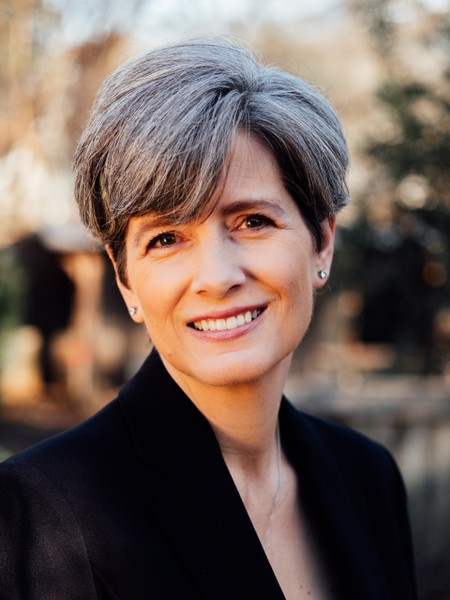
Infinite Careers is a collaboration between Career Services (CAPD) and the MIT Alumni Association to explore career paths and the non-linearity of career decision making. Read profiles of alumni with unique career paths, hear their stories and network at a series of talks.
Education
- MIT, Mechanical Engineering. S.B. 1996
- Mechanical Engineering, Georgia Tech, Ph.D. and M.S. 2003
Dr. Rebeccah Brown is the Vice President of Global Regulatory Affairs for MIMEDX, a biopharmaceutical company developing, manufacturing and marketing regenerative biologics utilizing human placental allografts for multiple sectors of healthcare. She is responsible for executing regulatory strategy and advancing regulatory approvals for MIMEDX products worldwide.
Dr. Brown has over twenty years of experience leading teams to produce innovative and impactful products, with a focus on regulatory strategy and approvals for the past decade. She has worked at companies ranging in size from 12 employees to 120,000, in roles related to Product Development, Intellectual Property, Quality Assurance, and Regulatory Affairs. She holds numerous US and international patents.
Dr. Brown holds a Ph.D. and M.S. in Mechanical Engineering from the Georgia Institute of Technology, where she was a National Science Foundation Graduate Research Fellow, and a S.B. in Mechanical Engineering from the Massachusetts Institute of Technology. She serves as the Chair of the Georgia Institute of Technology Woodruff School of Mechanical Engineering Advisory Board, a member of the Georgia Tech College of Engineering Advisory Board, and is co-founder and past Chair of the Women of Woodruff organization.
Is there anything you wish you had done differently or more of while you were at MIT?
When I was at MIT, I was very focused on doing the best I possibly could. It seemed like I spent most of my time outside of class doing problem sets or studying. I remember making time, once, most likely my senior year, to hear a famous architect speak on campus. It was an amazing lecture and I still remember key messages. I know there were frequent opportunities to attend special lectures, or other ‘extracurricular’ functions all the time – but I never took advantage of it, since I was too ‘busy’ studying. I wish I could go back and tell my undergrad self to go to anything and everything that sounded interesting – that you would be unlikely to have these opportunities again once you were out in the real world.
What motivates you to do the work that you do?
The company I work for develops, manufactures, and distributes medical products. We can see the direct impact on patients. We hear their stories and bring them or their doctors in for presentations to our employees. I’m motivated by these patients, but also know how critical it is to continue to advance medical science since I’m aging and will most likely be using some of these new and exciting treatments in the future!
Making decisions, especially important-feeling career decisions, is really challenging for people at all stages of their career. What strategies have you used to make career decisions?
After what I considered my first critical career decision (what undergraduate school to go to!), I realized, more often than not, that whatever I was choosing between were amazing options, that there wasn’t going to be a ‘wrong’ decision. I could waste hours debating between two things, when in reality, both were excellent. That understanding allows me to ‘go with my gut’ more often, and move quickly to whatever my next challenge would be. Analysis paralysis is not helpful in moving forward!
What professional development experiences or opportunities shaped your early career?
By the time I graduated with a PhD, I’d had a variety of experiences that helped guide me to my current career. During undergrad, I spent a summer working at a national lab, and right out of undergrad at MIT, I worked for Hewlett Packard. I loved my job and was exposed to how an extremely large corporation functioned. During grad school at Georgia Tech I did an international internship and decided to go to a start-up afterward graduation. These very different experiences gave me exposure to how to operate (and survive) in a variety of situations. It also taught me what to look for – how to find a job and craft a position were I would be most satisfied and successful.
What professional development activities do you find really useful these days?
At this stage in my career, professional development comes through growing relationships throughout my industry (and outside of it), and giving back to our industry and the patients it serves through work with various advocacy groups. I attend several annual conferences that are critical to this development.
What’s the best piece of career advice you’ve received?
“Don’t burn out.” You are worthless to your company if you burn out, so do not work ALL of the time. Work most of the time, and work efficiently, but if you find yourself working late every night with no end in sight, change something. This has helped me many times, over the years, to decide to close my computer for the night earlier than I would have, had I not received that advice early in my career. I think it’s why I’m still with my current company, 19 years later! There’s never an end to the work – you have to know when to stop for the day.
What do you like to do outside of work for fun/relaxation/inspiration?
Reading, gardening, and walking are all good ways to decompress. I also tend to a small flock of ten chickens and manage our historic real estate investing LLC to keep active.
Last edited: February 2024


